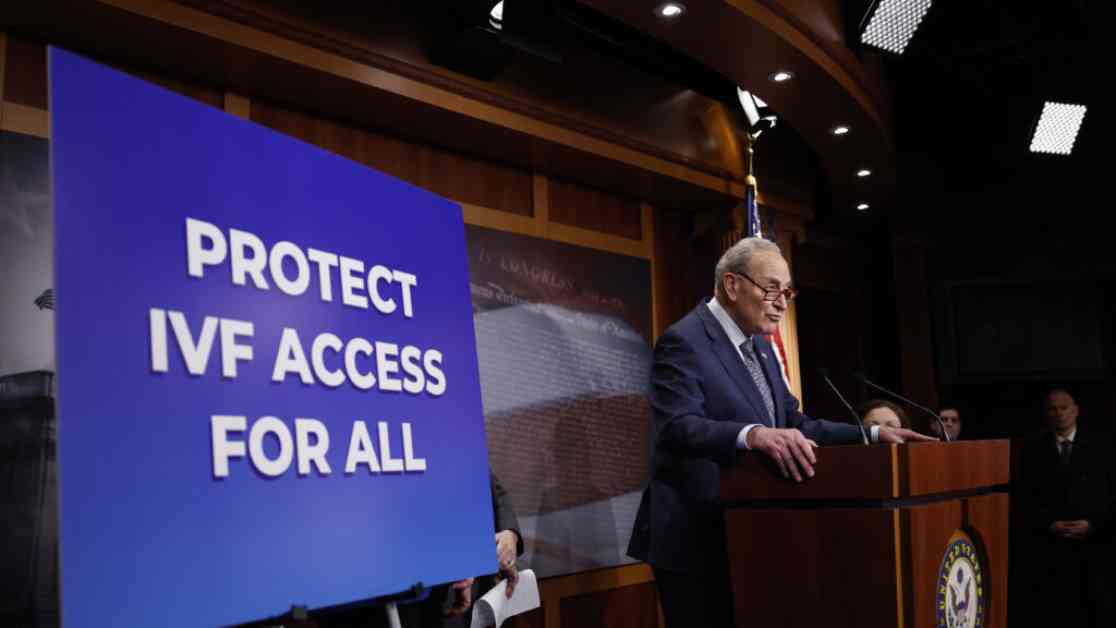The Senate grappled once again with legislation aimed at protecting access to in vitro fertilization (IVF) on Tuesday, with the Right to IVF Act falling short of the votes needed to pass. This latest partisan battle over reproductive health care comes amid the backdrop of the 2024 presidential election, with Democrats pushing for expanded reproductive rights while facing resistance from many Senate Republicans.
Democrats were not surprised by the outcome of the 51-44 vote, as they expected many Senate Republicans to oppose the bill. The Right to IVF Act would prohibit state restrictions on the procedure and mandate insurance coverage for IVF treatments. Despite two Republicans, Senators Lisa Murkowski of Alaska and Susan Collins of Maine, crossing party lines to support the bill, the majority of their caucus reiterated arguments that the legislation was a ploy by Democrats to score political points. They argued that there is no real threat to IVF access, making the bill unnecessary.
For Democrats, the failed vote presented an opportunity to highlight the stark differences between the parties on reproductive rights. Senator Murkowski acknowledged the political messaging behind the bill, noting that it was a way for Democrats to challenge Republicans on their stance regarding IVF access. Murkowski emphasized her support for IVF, stating that she wanted her constituents in Alaska to know where she stood on the issue.
The political landscape surrounding reproductive rights has become increasingly contentious, particularly as former President Donald Trump seeks to downplay divisions within the Republican Party. Trump recently announced his intention to make IVF free for all Americans, either through federal funding or insurance coverage mandates. However, many Republican senators remain opposed to the Right to IVF Act due to concerns about its broad requirement for IVF coverage, which they argue could infringe on employers’ religious beliefs.
The specter of Alabama’s inadvertent IVF ban earlier this year looms large for Republicans trying to navigate the complex terrain of reproductive rights. Despite efforts to distance themselves from the debate, many Republicans are finding it challenging to reconcile their opposition to abortion restrictions with their support for IVF access. Democrats seized on this contradiction, pointing to former President Trump’s recent comments on IVF to underscore the importance of the legislation.
Senator Patty Murray of Washington highlighted the connection between IVF access and the overturn of Roe v. Wade, emphasizing the impact of Trump’s actions on reproductive rights. Murray blocked a vote on a GOP-led IVF bill, arguing that it contained loopholes that could allow states to restrict the procedure. Efforts to craft a bipartisan version of the legislation have faltered, with disagreements over the scope of insurance coverage for IVF treatments proving to be a major sticking point.
As the debate over the Right to IVF Act continues, Senator Bill Cassidy of Louisiana criticized the bill as a political maneuver aimed at gaining advantage in the upcoming presidential race. Cassidy argued that the legislation did not address a genuine need but rather served as a tool for partisan posturing. Despite the challenges in passing comprehensive IVF legislation, the issue remains central to the broader conversation around reproductive health care in the United States.


















